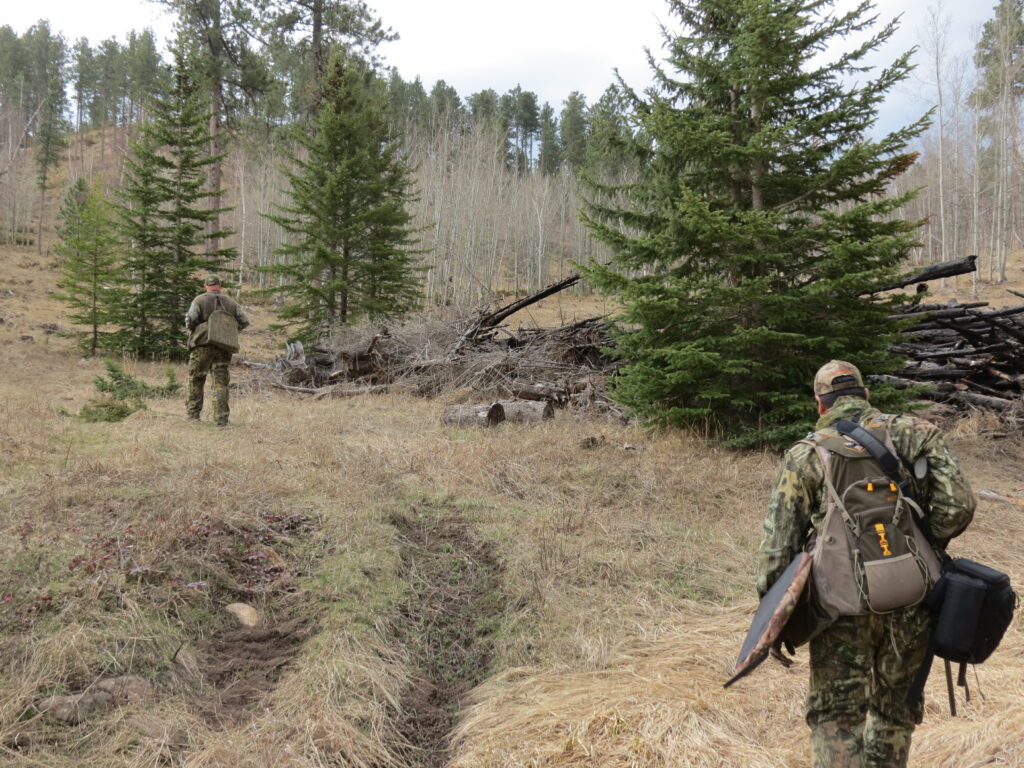In recent weeks we have seen Major League Baseball get embroiled in another round of unwritten rules childishness thanks to the baseball police, as Yermin Mercedes, a professional baseball player who is paid to hit the ball far, hit the WRONG ball far. The prudes and self-appointed “protectors” of baseball arrived on the scene to tell the rest of how it is “supposed to be done.”

Hey, Mr. Unwritten Rules Guy. Shove it.
And while we’re at it, let’s talk about how that same unwritten rules mindset exists among too many hunters and anglers, and why those people can shove it too.
If your unwritten rules were so damn important, I’m guessing someone smarter than you would have thought to write them down at some point in the course of human history. The vast majority of your “rules” aren’t really rules, they’re just preferences that you want to impose on how other people enjoy their time afield.
The Problem with Unwritten Rules
Far too often I see the unwritten rules used as a mechanism to put down how someone else chooses to go about spending their time in the outdoors. They shot a smaller buck than you would have, or kept a bass for the table instead of releasing it. Maybe they took a shot longer than you would have or used a weapon you happen to not like.
This isn’t about letting every Tom, Dick, and Harriet do whatever they want. Common courtesy should extend to everyone and everything. You don’t cut someone off when you’re driving unless you’re a jerk. You don’t drop anchor in casting distance of another boat unless you’re a jerk. That’s not an “unwritten rule.” That’s called, “not being a total douche.” Like it or not, some people just are. These people should be told as much, but it shouldn’t be presented as some sort of UNWRITTEN CODE OF THE OUTDOORS.
People use all kind of codewords to evoke the idea of unwritten rules. They say something isn’t “sporting.” Sometimes they will say “just because it’s legal doesn’t mean it’s ethical.” What they really mean is “I don’t like how you did that, even though you were well within your rights to do it, so you’re going to hear me tell you how you should have done it.”
Doing any or all of that makes you a genuine ass.
For all the good the internet has brought us, the community it has built, the friendships it has made, too many people are using the internet as a tool to show just how big of an ass they can be.
For all the information the internet holds, we seem to be getting dumber as a society. Maybe that’s because opinions on the internet outweight facts by a factor of about 50 to 1 (which of course, isn’t a fact, it’s an opinion, but it does have the advantage of being truer than not). That’s compounded by the fact that the vast majority of those opinions aren’t helpful or constructive. They are just there to let someone else know you disapprove of what they did, how the did it, or what they think.
Let me answer it before you ask. Yes, what I’m saying here is different than all those other people. Why? Because the only people I’m telling to do better are the people who are running our newest and most vulnerable outdoor enthusiasts out of the sport.
I don’t know how many more times it has to be said before some of you get the picture. If you don’t support legal, ethical hunting, fishing, and trapping in all its forms and fashions, you condemn all of it. Outdoor recreation has become a house divided against itself. We like to use PETA, HSUS, Moms Demand and others as the Boogeyman coming to take our hunting rights or our gun rights, then we turn right back around and decry how other hunters hunt, how other anglers fish, and tell them that they aren’t doing the right way unless they are doing exactly the way we would.
Unwritten rules.
B. S.
The Fix
Congratulate every hunter. Like every photo of a caught fish. Post “well done” on a successful trapping photo. Try to educate yourself about other ways to hunt and fish, or understand why it’s done differently somewhere else.
Quit hiding behind some veil of implied moral superiority because of some nonsense unwritten rule from four decades ago. If someone did something truly wrong, let them know. If they could do it better, let them know. But do so the right way. Don’t be critical, be supporting. Don’t do it publicly, reach out privately. Let people learn.
Time are changing in the field, baseball and outdoor. You can be part of the generation to come, and promote growth, inclusion, and expansion. Or, if you prefer, you can be among the voices that hold us back, divide us, and cling to some unwritten rule that was never important enough to be written down.
The choice is yours.